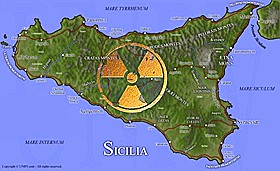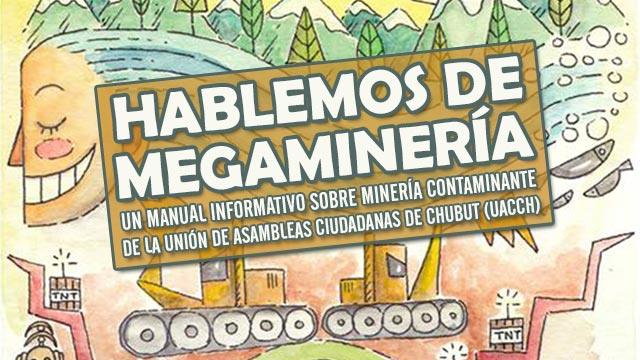Argentina – 02/10/08. The world's third largest mining company, Rio Tinto, may have considered it would easily overcome any opposition to its proposed huge potash mine in Argentina. After all, this would be an underground operation, a non-metallic one, and would offer fertilisers in abundance – albeit probably to Brazil. If so, the company underestimated not only the militancy of local people, but the expertise of several Argentinian agencies which have found major flaws in Rio Tinto's plan.
By Hugo González Crespo – Forum In Defense of the Río Colorado
Just as in other communities along the Río Colorado river, ordinary citizens, includingteenagers, mining specialists and inter-provincial authorities have again opposed the installation of the Río Colorado Potash (RCP) mine, until terms, conditions and above all, environmental guarantees, are provided by Río Tinto, the company behind the project.
To provide the context, not only environmental, but also from the point of view of the sustainability of resources, participants raised the necessity of involving the national Secretary of Energy because of the tremendous gas consumption that the project requires. “The people will not permit the advancement of this project that will put environmental resources at risk, until there exist all of the necessary guarantees that will guard our resources,” stated the final document agreed at the forum.
The fifty participants who worked with equal commitment, including the vice-governor of Río Negro, Bautista Mendioroz, Mayor of Río Colorado Juan Villalba, the president of the Inter-jurisdictional Committee of Río Colorado (COIRCO) Miguel Boyero, and his engineering director Juan Perl. Also participating were Professor Marcelo Giraud, member of the Mendocino Assembly for Pure Water, members of the Commission of Water Resources of the Río Negro Assembly, Martín Berhongaray, and Graciela Grill, Daniel Petri of COIRCO, and the Municipal Sub Secretary of environment, Gisel Etulain.
General Conclusions of the Forum:
Upon analysis of the potash project Río Colorado, it is clear that the benefits will come almost exclusively only to the shareholders of the Río Tinto corporation, with an insignificant trickle of benefits arriving to the local, regional and national economy.
The analyses carried out until this point, by the entities involved in the evaluation of the project at provincial level, along with specific analyses of the water of the river Río Colorado do NOT correspond to a model of Sustainable Development.
It is also evident that the Argentinian people, principally residents of the Rio Colorado river basin, will be the ones who run the risks, pay the costs, and bear the impacts of this project – some which will last for perpetuity,
We reaffirm with total clarity our unanimous decision to oppose the Río Colorado Potash project until we have the necessary and proven guarantees by competent organisations and agencies, which will permit us to exercise a real and true defence of the environment, the natural resources, and the quality of life for all residents of the Río Colorado river basin.
We would like to commend the work of COIRCO in commitment to the defence of water resources and affirm our clear confidence in their technical evaluations regarding the project.
It is with true citizens' participation that we will be able to halt future incursions by these companies; through such participation we can defend our rights and make a healthy environment.
________________________________________
Rio Tinto to invest $170 mln in Argentina port
Reuters
Argentina 16/09/08. Global mining giant Rio Tinto plans to invest $170 million to build a terminal at Argentina's southern port of Bahia Blanca to export potassium chloride (potash), government official said on Tuesday.
The new terminal to handle the compound, used mostly to make fertilizer, will serve Rio Tinto's $900 million, Rio Colorado mine, to enter construction in Mendoza province this year. “Yesterday (on Monday) the concession was signed to build the plant and terminal and use the property in the port zone of Bahia Blanca for 50 years, with an option to renew for another 50 years,” said a spokesman from Argentina's mine secretariat.
The Rio Colorado project is on the border between Argentina's west-central Mendoza and Neuquen provinces. Once built, the mine will produce 2.4 million tonnes of potassium chloride per year, making the country the No. 5 global producer of the chemical compound better known as potash.
It was not immediately clear when Rio Tinto would start construction on the Bahia Blanca terminal as certain permits on the Rio Colorado project have been delayed.
The project will include the development of rail infrastructure between the port and the mine, a distance of some 1,100 kilometers (683 miles).












